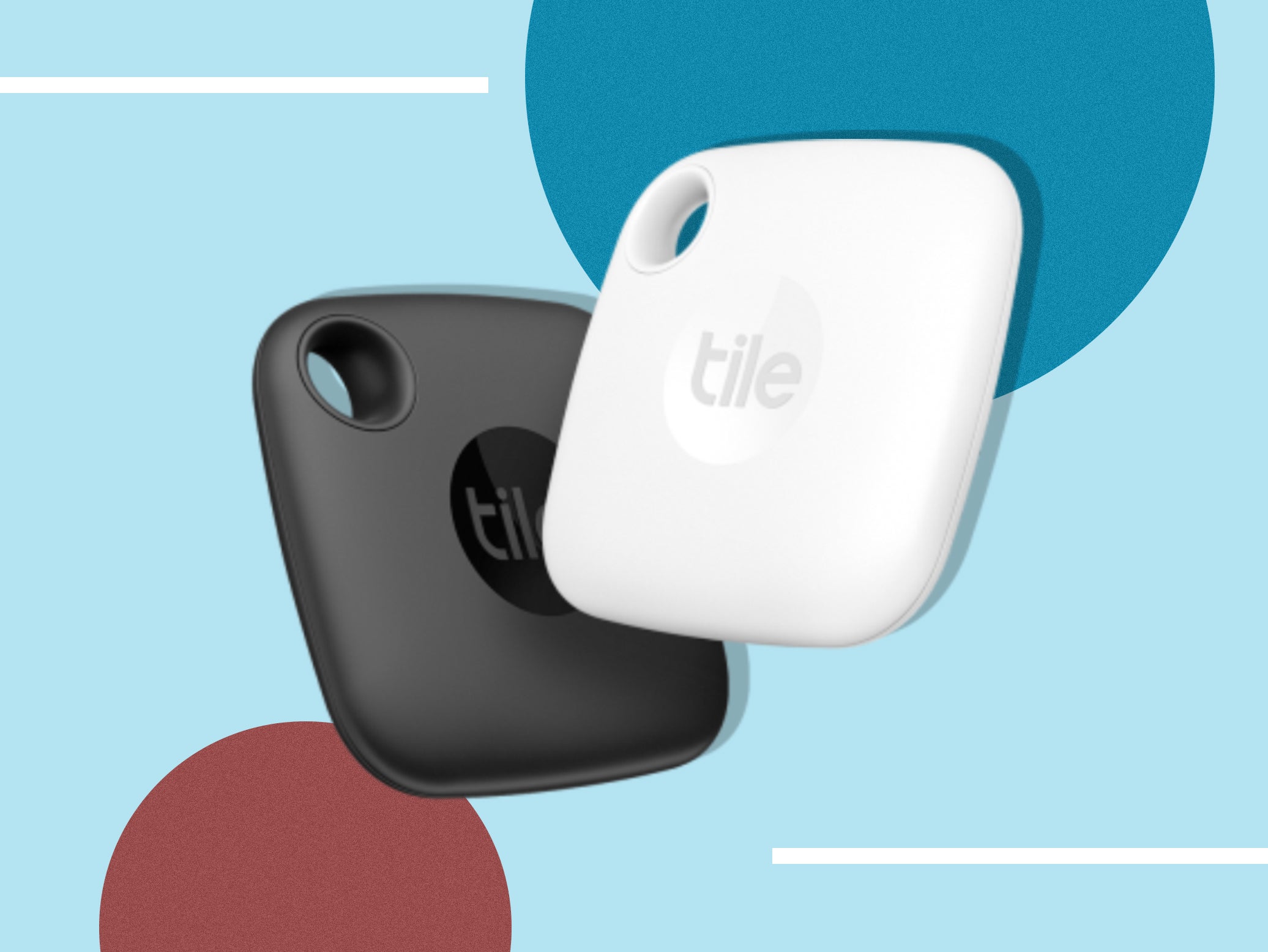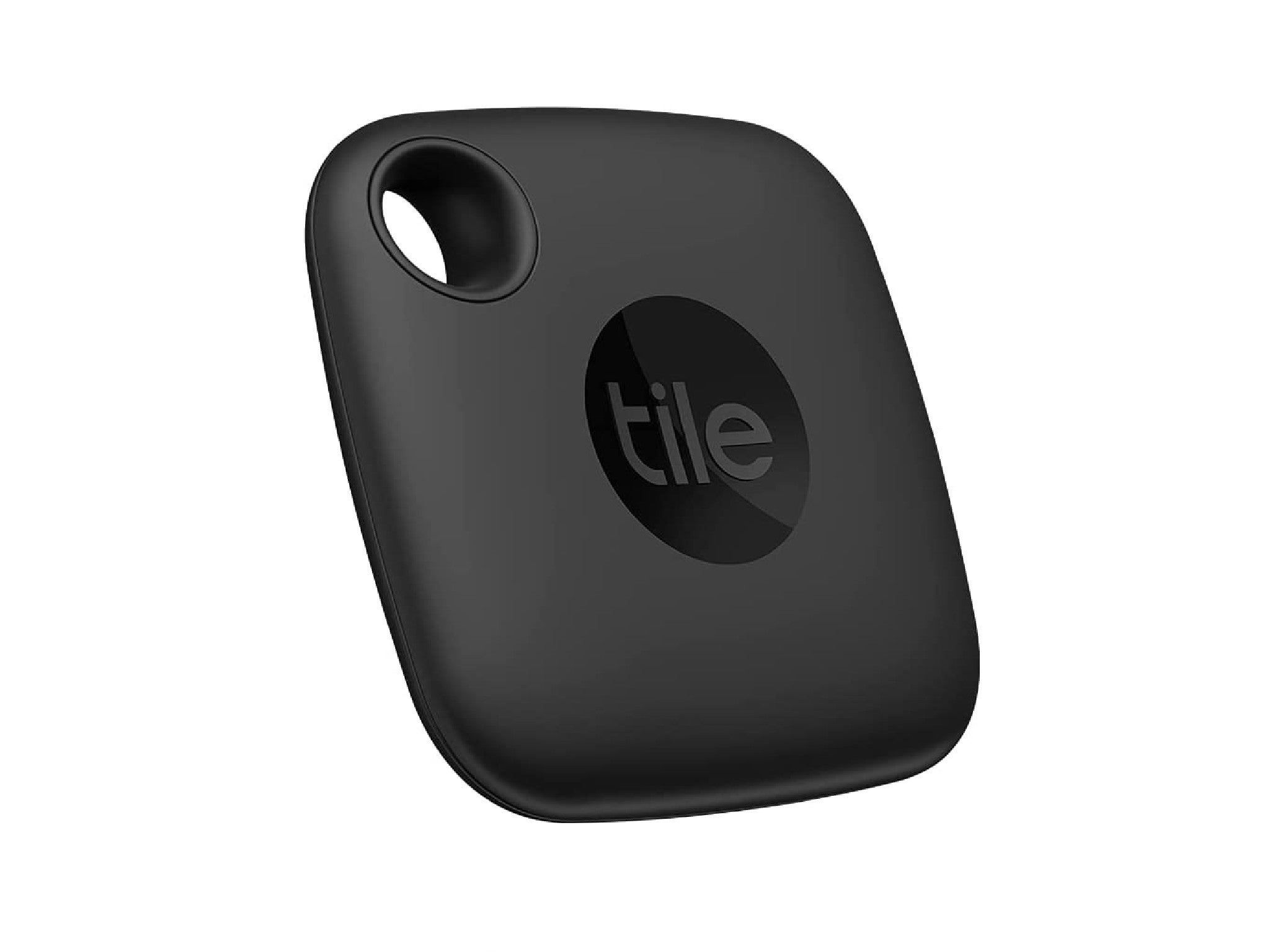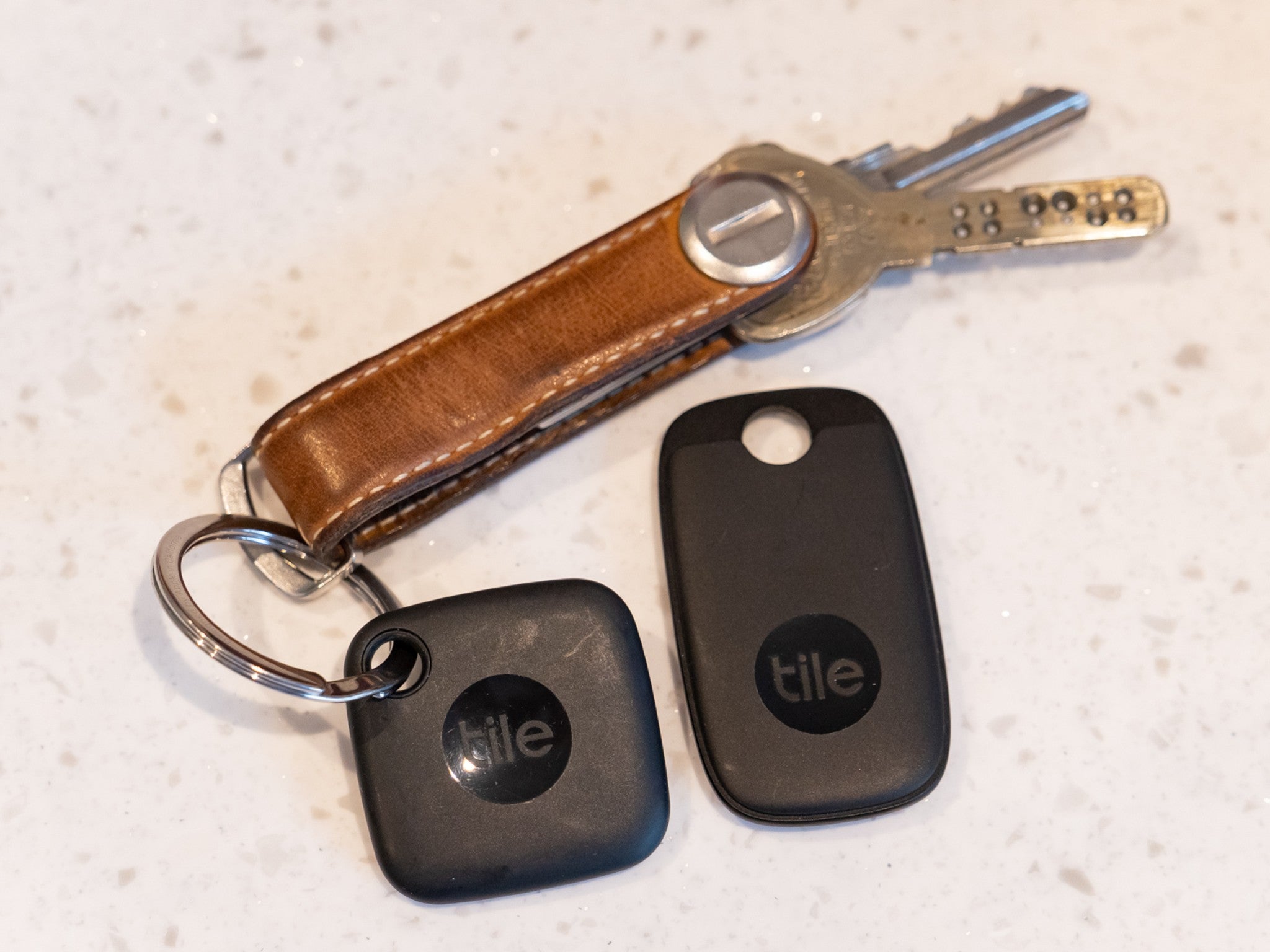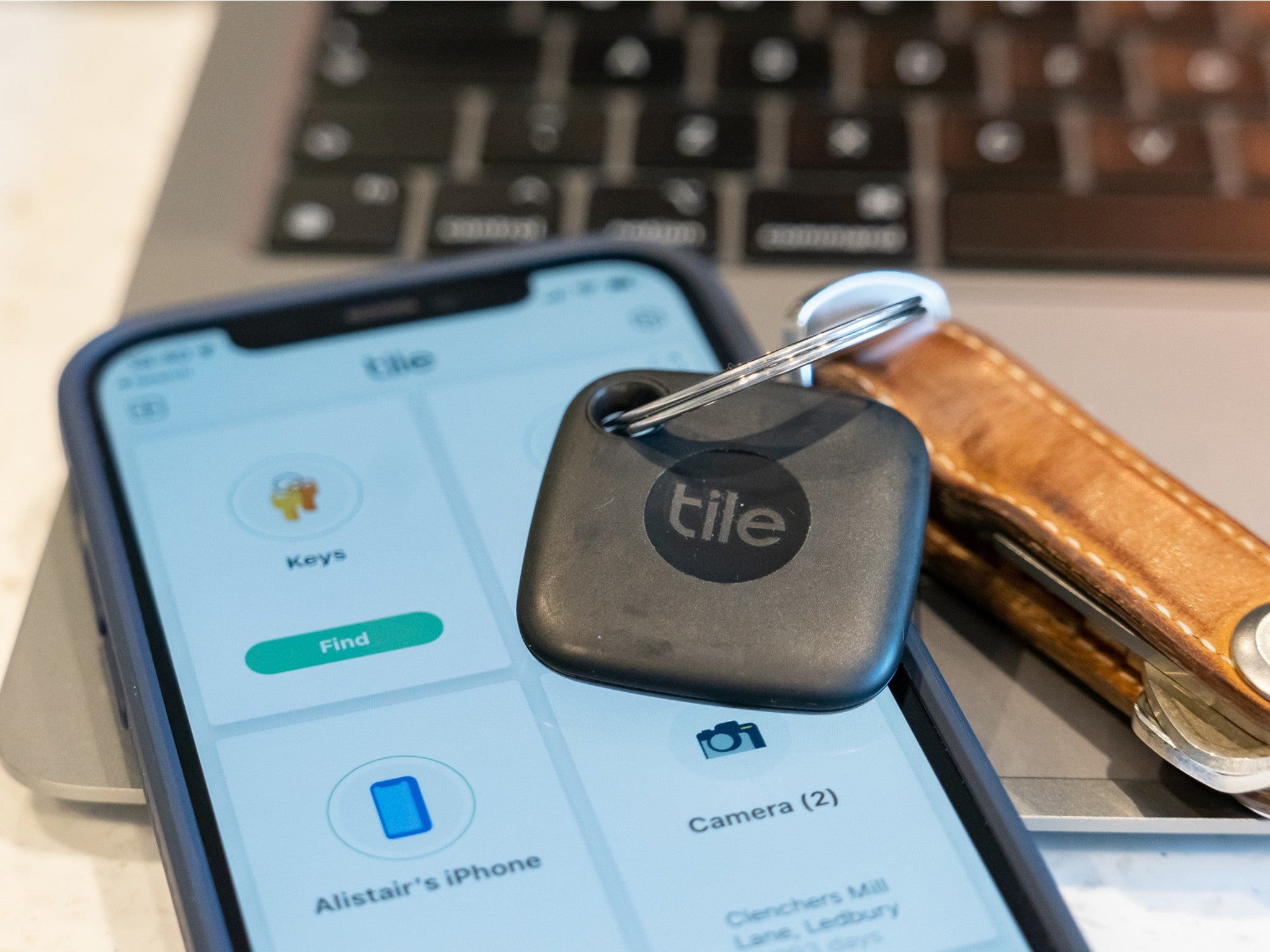The Independent's journalism is supported by our readers. When you purchase through links on our site, we may earn commission. Why trust us?
Tile mate review: Is this a compact key finder to rival Apple’s AirTag?
For iPhone and Android users alike, we put the company’s cheapest Bluetooth tracker to the test

Years before Apple introduced us all to the AirTag – and Samsung did the same for its customers with the Galaxy smart tag – Tile showed the world how a Bluetooth antenna, a small speaker and a coin battery can be used to help find your lost keys.
Tile arrived in 2012 and has gradually expanded and upgraded its offering of possession trackers that attach to items like keys, bags and wallets, then help customers find them when they go missing.
The US firm now has a broad range of trackers, but the mate is closest to the original recipe.It is also the most affordable, coming in at £37.99 for a two pack (£37.99, Tile.com), or just for £14.99 via Amazon.
While Apple’s AirTag only works with iPhones and Samsung’s smart tag is exclusively for Galaxy users, Tile is very much the neutral Switzerland of possession trackers. Its products work with all smartphones, thanks to free apps for both iOS and Android.
As with its rivals, the Tile mate connects to your smartphone via Bluetooth, then can sound an alarm if misplaced nearby. It can also share its location with a fellow Tile user who passes by within Bluetooth range, and this location is then passed on, anonymously, to its owner.
Read more:
How we tested
We attached the Tile mate to our keys – replacing an AirTag, incidentally – connected it to our iPhone and forgot about it. Because that’s the entire point of possession trackers like these; these are the very definition of a set-it-and-forget-it device, which quietly works in the background, before springing into life when you need it.
In our case, this meant simulating the loss of our keys by putting them in a different room and using the speaker to find them. We then “forgot” them in our car parked a few streets away, and left the Tile network to tell us their location. Here’s what we think of the brands cheapest gadget.
Tile mate: £14.99, Amazon.co.uk

Rating: 8/10
Price and availability
The Tile mate is available now. It is offered in black or white and carries a retail price of £14.99, or a slightly reduced rate of £37.99 for two. It is the cheapest device Tile sells, and at its regular price undercuts the Apple AirTag and Samsung Galaxy smart tag by £10.
Design
The Tile mate stays true to the very first Tile, in that it is a small, square device with an integrated hole for attaching to your keys or bag, and there’s a button in the centre. Pressing this initiates the setup process, and once connected to your phone a double-press of the button causes your phone to ring, even when switched to silent, helping you locate it.
The rounded corners of the Tile mate give it a soft and friendly aesthetic, and while the plastic scratches easily this shouldn’t be a concern. This is a device destined to spend its entire life attached to your keys; it’s going to get scratched pretty quickly.
The integrated hole is a simple design trait, but one that elevates it above the Apple AirTag, as the Apple tracker lacks a hole, so requires a case to be attached to a keyring – which, of course, you have to buy as extra.

Smaller than the more expensive Tile pro, the mate measures 37.8mm x 37.8mm x 7.1mm. But the mate also has an IP67 water resistance – the same as it’s pricier sibling – which means the mate can survive being submerged in a metre of clean water for 30 minutes.
However, unlike the Tile pro (as well as the AirPod and Galaxy smart tag), the Tile mate’s battery is not replaceable. This leaves a bitter taste in the mouth, as not only does that mean the £20 device is dead after its “up to three year” life, but also it has to be thrown away, whereas the Tile pro can have its coin-style battery replaced and live on.
How does it work?
The mate works just like every other Tile product. That means it connects to the Tile app (free for iOS and Android) via Bluetooth. When within Bluetooth range, the Tile mate’s speaker can be instructed to play an alarm to help you find it, either with a tap in the app or by asking Alexa or the Google Assistant to find it for you.
Read more: 16 best Bluetooth speakers for every budget
When out of Bluetooth range, the device can be marked as lost within the Tile app. Then, when the mate comes within Bluetooth range of another user’s smartphone, it will share its location with the Tile network. That user doesn’t know this has happened, and anonymity is ensured throughout, but that exchange results in the owner of the device being told its approximate location.
Then it’s a case of going there, and once the owner’s phone is back within Bluetooth range, the Tile mate will reconnect and you can sound the alarm to locate it.
How good is it?
For this bit we could just say, “yes, it really does work”, but you probably want a bit more context than that. Being the cheapest Tile means the mate has a shorter Bluetooth range than the pricier Tile pro, at up to 76 metres (in open space with no obstructions) compared to 120 metres.
It also has a slightly quieter speaker than the Tile pro, but is still powerful enough to be heard a room or two away. Like all other Tiles, the setup process is quick and easy though, letting you assign a name and photograph to the tracker.

As we’ve already mentioned, when it comes to finding it, you’ll need to open the app. If it’s within Bluetooth range you can make it play a loud jingle until you find it. If lost elsewhere, the app will show where the Tile was last connected to your phone with Bluetooth (so when you were last within about 70 metres of it).
If you still can’t find it, you can call upon the Tile community to help. You can also ask Alexa, Google Assistant or Siri to help find your device; just connect your Tile account to your voice assistant of choice, and say something like: “Hey Siri, ask Tile to find my keys” and the jingle will be played. Handily, the app also shows you when the battery is running low.
What is Tile Premium?
Everything mentioned so far is included with the £14.99 price of the Tile mate, but more features are available if you upgrade to Tile Premium, which costs £29.99 a year or £2.99 a month. This activates a feature called smart alerts, which sends notifications to your phone when the Tile app thinks you’ve left something behind. For example, if you leave the office with your keys and wallet, but without your laptop bag, the app will let you know (providing it has been taught in advance that you usually carry these items together).
Read more: Chipolo one spot key tracker review
Tile Premium also includes free battery replacement, though sadly this isn’t relevant to the Tile mate and its non-replaceable battery, as well as an enhanced warranty where your Tiles are replaced if damaged or defective. One Tile Premium subscription can be used with as many Tile devices as you like though so it could be worth investing if you’re prone to “misplacing” your belongings.
The verdict: Tile mate
Everyone can benefit from attaching a Tile mate to their keys or bag, and especially Android users as the AirTag only works with iPhones. The Tile mate is cheaper than Apple’s version, and the integrated hole means it can be attached to keys without needing to buy a case.
On the plus side, the app is easy to use, Tiles are quick and simple to set up, and the system is very effective at finding items misplaced around the home. However, using the Tile community to help find items lost elsewhere isn’t as good as Apple’s Find My system, simply because there are many more iPhone users in the world than Tile owners. Tile’s ability to find your stuff will depend a lot on local population density. And it’s also a shame that the battery can’t be replaced once dead.
Voucher codes
For the latest discount codes on Apple and other tech offers, try the links below:
Compare the best mobile deals with Independent compare
So what about the Tile pro? Find out how the key finder fares in our review
